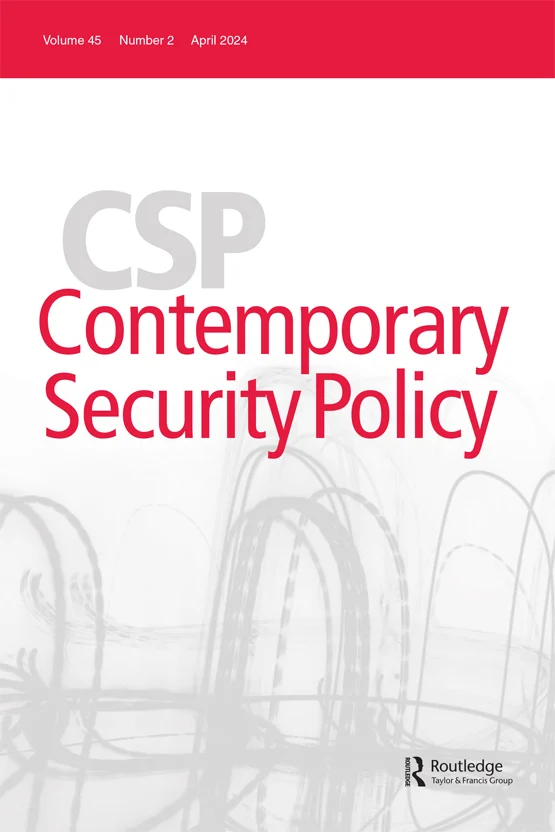以规则为基础的秩序作为修辞陷阱:比较印太地区的海事争端解决
IF 5
1区 社会学
Q1 INTERNATIONAL RELATIONS
引用次数: 1
摘要
摘要为了应对对亚洲安全秩序的挑战,澳大利亚、印度和日本等地区大国采用了新的“印太”战略叙事,以促进和捍卫“基于规则的秩序”。这些叙事将中国与南中国海较小邻国的海洋争端作为北京修正主义意图的一个关键例子。然而,这种叙事使“基于规则的秩序”倡导者面临“修辞陷阱”的风险,因为其他行为者迫使他们遵守他们制定的标准。印太大国在多大程度上被迫在自己不对称的海洋争端中遵守规则?本文审查了三个印度-太平洋案件:澳大利亚和东帝汶之间的帝汶海强制调解、英国和毛里求斯之间的查戈斯岛海洋保护区仲裁以及印度和孟加拉国之间的孟加拉湾海洋边界仲裁。本文发现,战略叙事在不同程度上制约了三个印太大国的政策选择。本文章由计算机程序翻译,如有差异,请以英文原文为准。
The rules-based order as rhetorical entrapment: Comparing maritime dispute resolution in the Indo-Pacific
ABSTRACT In response to challenges to Asia’s security order, regional powers such Australia, India, and Japan have adopted new “Indo-Pacific” strategic narratives to promote and defend the “rules-based order.” These narratives use China’s maritime disputes with smaller neighbors in the South China Sea as a key example of Beijing’s revisionist intentions. Yet such narratives expose “rules-based order” advocates to risks of “rhetorical entrapment” as other actors compel them to abide by the standards they have set. To what extent have Indo-Pacific powers been forced to follow the rules in their own asymmetrical maritime disputes? This article examines three Indo-Pacific cases: Timor Sea Compulsory Conciliation between Australia and Timor-Leste, the Chagos Island Marine Protected Area Arbitration between the United Kingdom and Mauritius, and the Bay of Bengal Maritime Boundary Arbitration between India and Bangladesh. To varying degrees, this article finds that strategic narratives constrained the policy options of all three Indo-Pacific powers.
求助全文
通过发布文献求助,成功后即可免费获取论文全文。
去求助
来源期刊

Contemporary Security Policy
Multiple-
CiteScore
14.60
自引率
6.80%
发文量
22
期刊介绍:
One of the oldest peer-reviewed journals in international conflict and security, Contemporary Security Policy promotes theoretically-based research on policy problems of armed conflict, intervention and conflict resolution. Since it first appeared in 1980, CSP has established its unique place as a meeting ground for research at the nexus of theory and policy.
Spanning the gap between academic and policy approaches, CSP offers policy analysts a place to pursue fundamental issues, and academic writers a venue for addressing policy. Major fields of concern include:
War and armed conflict
Peacekeeping
Conflict resolution
Arms control and disarmament
Defense policy
Strategic culture
International institutions.
CSP is committed to a broad range of intellectual perspectives. Articles promote new analytical approaches, iconoclastic interpretations and previously overlooked perspectives. Its pages encourage novel contributions and outlooks, not particular methodologies or policy goals. Its geographical scope is worldwide and includes security challenges in Europe, Africa, the Middle-East and Asia. Authors are encouraged to examine established priorities in innovative ways and to apply traditional methods to new problems.
 求助内容:
求助内容: 应助结果提醒方式:
应助结果提醒方式:


